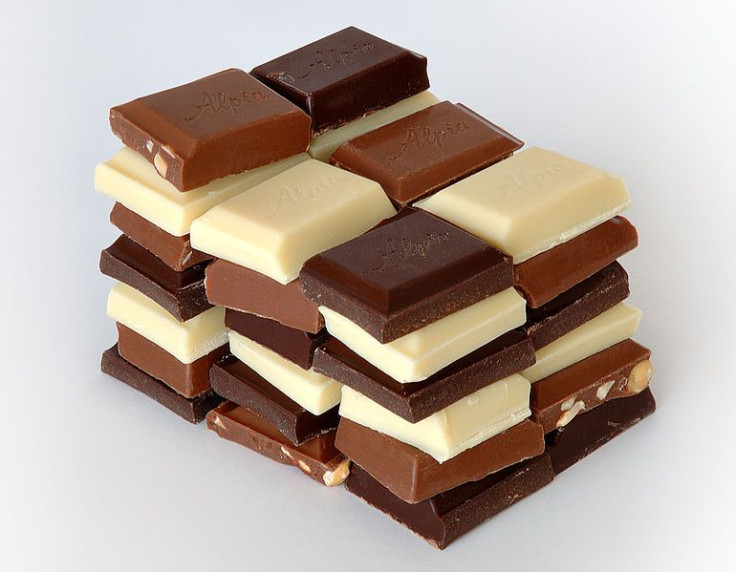Eating Dark Chocolate During Pregnancy Inspires Greater Response In Female Fetuses

Every now and then, an old wives' tale proves to be true. For years, pregnant women have heard that salty food cravings mean they're carrying a boy, and sweet cravings for chocolate and juice mean a girl. Now, Italian researchers have discovered that female fetuses react much more strongly than males when their mothers eat chocolate, lending the tale some truth.
Chocolate cravings are common in women, pregnant or not, says Andrea Tranquilli of the University of Politecnica Marche in Ancona, Italy. Less clear is whether those cravings are inborn or culturally acquired, he and his co-authors write in the Journal of Maternal-Fetal and Neonatal Medicine. For example, previous studies have shown that differences in chocolate cravings between women and men in Spain are less pronounced than they are in the U.S.
Researchers embarked on the new study to explore the existence of an innate gender difference in the effects of chocolate, but in utero. His research involved 100 pregnant women nearing their delivery dates, 46 of them carried a male fetus and 54 carried a female. All of the participants claimed that they had not consumed any chocolate during the previous 90 days at least.
Tranquilli and his team measured the fetuses' response before and after the mothers-to-be ate five pieces of dark chocolate, by measuring accelerations in fetal heart rate and changes in fetal movement. The 80 percent cocoa treats, made by an Italian master chocolate maker, inspired pronounced responses from both male and female fetuses.
Apparently, the treats stimulated the female fetuses more. Females showed a greater increase in fetal movements and more episodic accelerations in their heart rate. Females also responded to the chocolate more quickly than males.
"The fact that female fetuses react more than males shows that this attitude [a woman's preference for chocolate] is innate," Tranquilli told The National Post. "It's unequivocally innate."
Questioned as to whether the fetuses were merely responding to the calories and fat in chocolate, Tranquilli believes the answer is no. Earlier studies by his team found that both female and male fetuses react more to increasingly higher concentrations of cocoa. And it is exactly the chocolate with lower concentrations of cocoa that contains a higher proportion of cocoa butter, which is high in fat and calories.
Other researchers wondered if hormones play a role since some women say they crave chocolate around the time of their menstrual periods.
Hormonal Fluctuations
Another study surveyed pre- and post-menopausal women in order to establish whether period-related chocolate cravings are due to hormonal changes or are simply a general response to stress. From pre- to post-menopausal women, researchers found that only 13.4 percent less women craved chocolate once their menstrual hormonal fluctations ceased. Researchers concluded that hormonal fluctuations can't explain perimenstrual chocolate cravings entirely, since the decrease in post-menopausal women craving chocolate was too small.
Tranquilli and his team agree with this conclusion. He has several possible explanations as to why female fetuses respond more to chocolate, including greater sensitivity of the female fetal brain and earlier maturation of the central nervous system. Receptors in the female brain might also respond differently to flavanols and other compounds in chocolate, he says. Studies have suggested that the antioxidants in chocolate can mop up DNA-damaging free radicals, and that the effect seems to be even greater in women.
Sources: Tranquilli, AL, Lorenzi, S, Buscicchio, G, Di Tommaso, M, Mazzanti, L, Emanuelli, M. Female fetuses are more reactive when mother eats chocolate. Journal of Maternal-Fetal and Neonatal Medicine. 2013.
Hormes JM, Rozin P. Perimenstrual chocolate craving. What happens after menopause? Appetite. 2009.



























